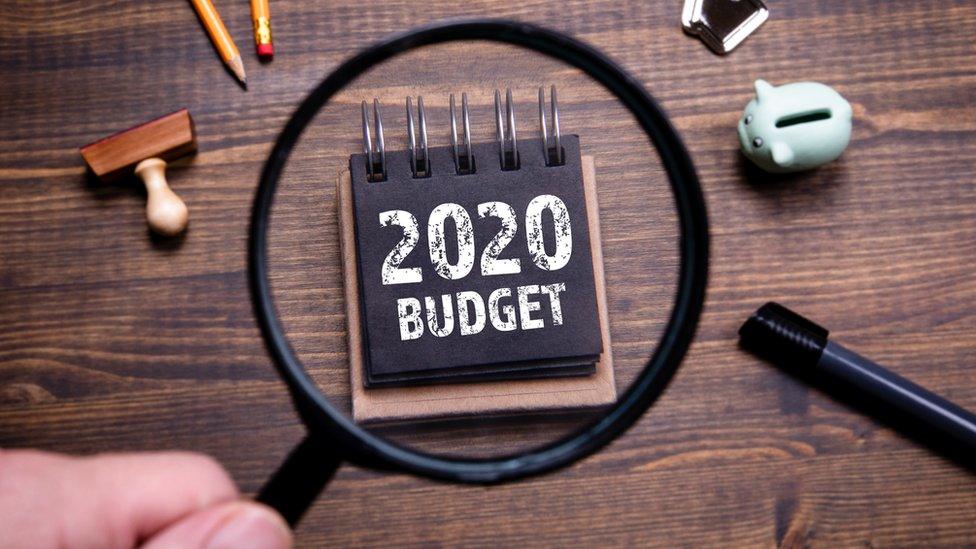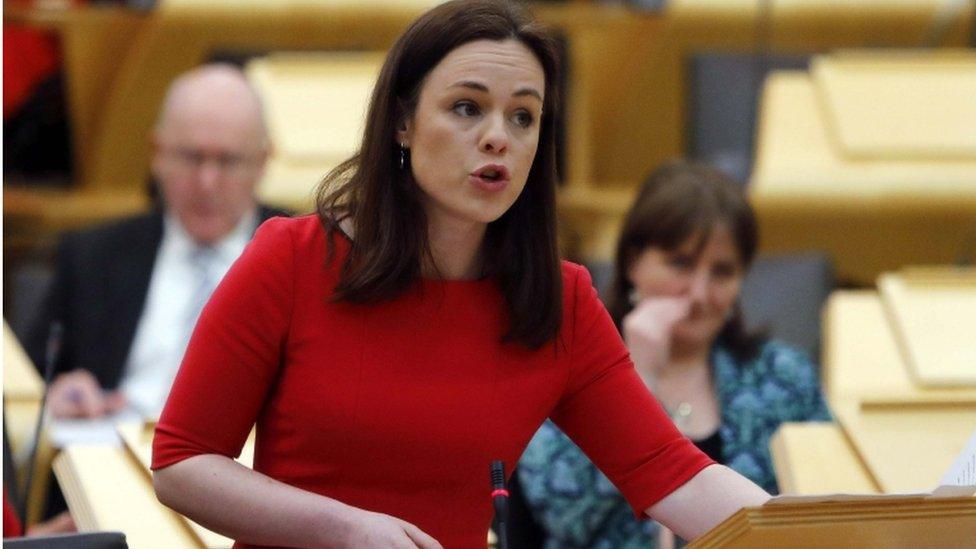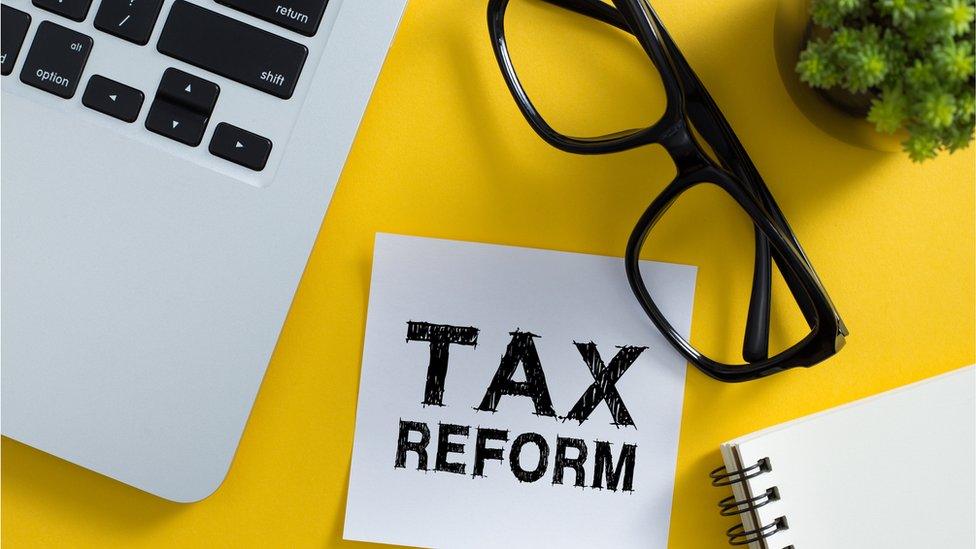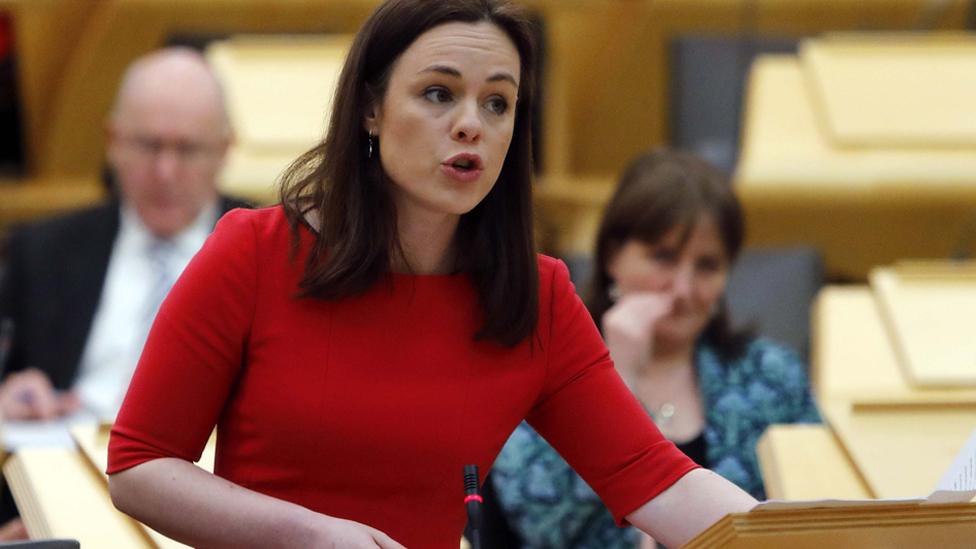Unpicking the Scottish budget
- Published

Expert analysis of the Scottish budget has foundered on its lack of clarity and transparency
It is hard, if not impossible, to tell how much is being spent on priority areas, such as tackling poverty or boosting economic growth
'Wellbeing' is a new dimension to budget planning, but it has yet to be defined or baked into the financial plans
Council tax remains barely reformed and regressive, yet bills are set to rise ahead of inflation.
The draft budget now being road-tested at Holyrood was a "wellbeing" budget.
It was progressive and inclusive. It was for growth, and a greener Scotland.
Or so we were told. The stand-in finance minister, Kate Forbes, won plaudits and new admirers for the way in which she told us.

Kate Forbes won plaudits for her budget performace
The tricksy thing about budgets, however, is that they feature numbers, which either back up the claims being made or they don't.
Or, alternatively, they leave even the experts baffled.
So, let's ask the question, for instance: how much is being spent to support families in poverty?
We don't know
The figure £1.4bn was used in the budget speech. It turns, out, when checked by poverty policy experts at the Joseph Rowntree Foundation, that was a number from two years ago. There's no number for next year, which is what this budget process is all about.
How much is being spent to promote economic growth, or better still, inclusive growth? At the Fraser of Allander Institute, they read the budget long into the night, and concluded that they don't know.
Take the flagship enterprise policy of taking many smaller businesses out of the reach of business rates. Is it popular with small businesses? Yes. Does it work in boosting growth? We don't know.

Are councils better or worse off in their funding allocation? Nope, that's not clear either. There's more money going in, but it seems all of it is attached to central government priorities. The 'discretionary' budget for councils is down. That's unless they use the leeway to raise council tax by nearly 5%. (Of which, more later.)
So in the very brief period available to MSPs to scrutinise the budget, to see if it stacks up and does what Kate Forbes said it does, they'll be lucky to get at the answers they're most likely to require.
This was the main thrust of the post-budget analysis by the Fraser of Allander Institute - to which it added expertise drawn from the Institute of Chartered Accountants in Scotland and the Joseph Rowntree Foundation.
These are not just any boffins and bean counters. The top two figures at Allander - the Strathclyde University economic and public finance centre - were at the heart of the St Andrew's House economic team, and not long ago. Prof Graeme Roy is scathing about the work his former colleagues have produced.
Find an answer
It is long, long-winded and reads like a series of memos between civil servants, he observes, and it doesn't answer the questions the public, and MSPs, are most likely to ask: what difference will it make, and does it actually follow the priorities being set?
An innovation with this year's budget is that it is about wellbeing. Inclusive growth is no longer the sole guiding purpose of the Scottish government. No, it's wellbeing.
And what is wellbeing, you might ask? Emma Congreve, of the Rowntree think tank, asked, and she couldn't find an answer.

For now, like beauty, it's in the eye of the beholder. One test of any new spending priority is whether it means some former priorities lose out. That is, it should isolate the spending that was NOT promoting wellbeing? That doesn't help us either.
Wellbeing is a worthy departure for budget planning. It follows a lead set by the New Zealand government.
So unfair
But in the beehive-shaped parliament in Wellington, they've been busy defining the concept, setting a framework, and attaching numbers and values to outcomes. There's a lot more work to be done in Edinburgh, it seems.
But at least we know that the SNP government is going to scrap "the hated council tax" because it is so unfair, and replace it with a much more equitable local income tax.
And it trumpets a "historic concordat" with local authorities, giving them the freedom to spend their funds as they choose, without strings attached.
No, hang on. That was 13 years ago, when it came to power. The concordat was binned long ago. More spending comes with more strings attached.
And council tax goes on, with no sign of reform beyond some tinkering at the higher bands. Inside Holyrood, it is rarely questioned because none of the major parties have the stomach for reform.

Outside Holyrood, it is regularly mauled by critics for being so regressive. That is, it demands a much higher share of the income of a poorer households than from that of a high earner.
Since those heady days in 2007 when council tax faced the axe, it ceased to be so "hated" through the simple measure of freezing bills. Replacing it with a local income tax looked too expensive in cash and in political capital.
Now, the Scottish government has income tax powers. That is more progressive than council tax.
It is difficult to localise without administrative burdens. Yet instead of raising more funds through income tax (progressive), it is local authorities that are being invited to raise their council tax (regressive) bills by nearly 5%.
Got that clear now? No, me neither.
- Published6 February 2020

- Published6 February 2020

- Published6 February 2020

